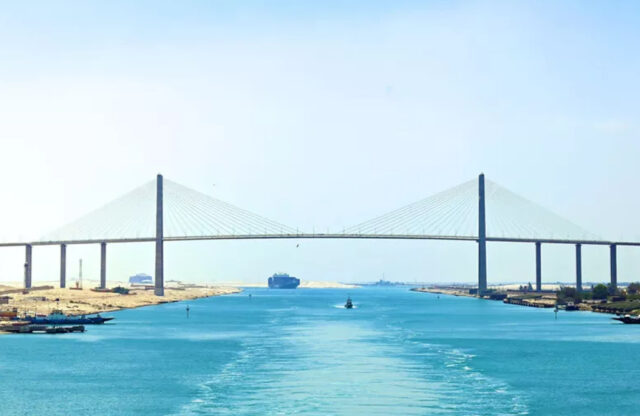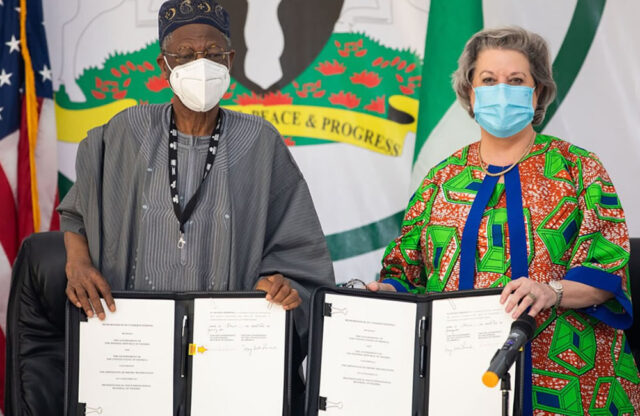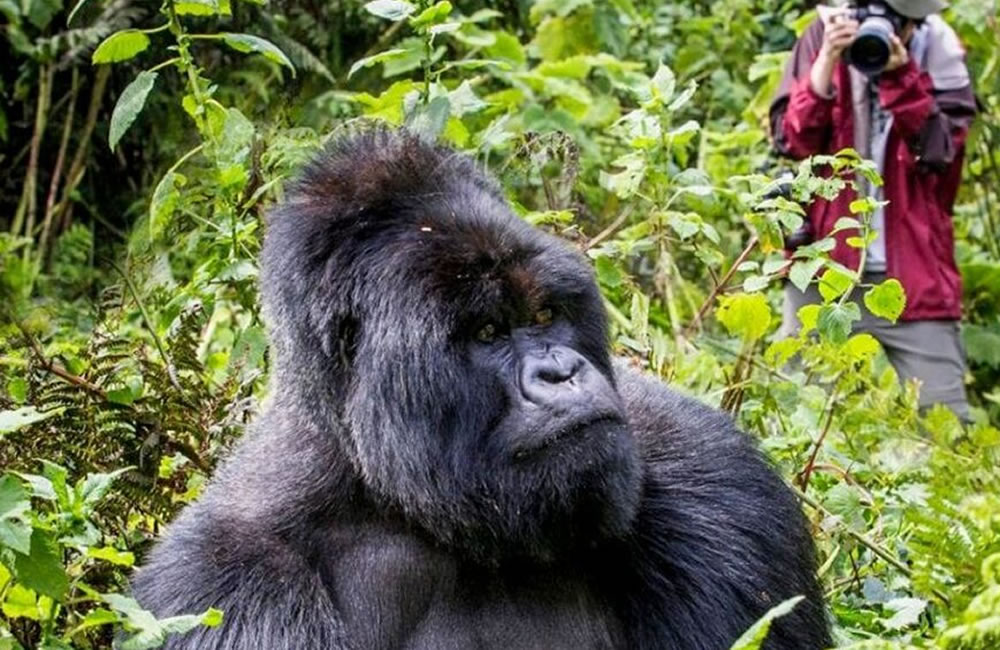AU Agency Tackles Africa’s Need for Increased Intra-Continental Travel
On Monday, AviaDev Insight, a podcast covering pressing issues in the African aviation industry, released an episode addressing the need for more intra-African travel and moves that have been made in that direction.
The episode featured Adefunke Adeyemi, the secretary general of African Civil Aviation Commission (AFCAC), and was recorded at Dakar, Senegal—where AFCAC is headquartered.
Adeyemi, an award-winning aviation professional, spoke on AFCAC’s efforts to promote a liberalised air service market on the continent, as a specialist agency of the African Union (AU).
AFCAC is the executing agency of Single African Air Transport Market (SAATM), which Adeyemi described as the aviation equivalent of the African Continental Free Trade Area (AfCFTA).
Just as AfCTA aims to make Africa the largest trading block in the world, SAATM is designed to make Africa one of the fastest growing aviation markets in the world, if implemented properly.
AFCAC also aims to” ensure enhanced safety, security, environmental protection for the purpose of sustainable aviation across the continent” through the SAATM initiative.
AFCAC, as well as AviaDev host John Howell, believe that SAATM could usher in the “golden age of aviation on the African continent”, as new routes are introduced, air fares are organically reduced, and increased economic returns are generated for African member states.
The agency is collaborating with 5 SAATM ambassadors, industry veterans across AFCAC member states, who are working to:
- Increase Fifth Freedom penetration across Africa (from the current 15% to 30% by 2025) and “seamlessly move people, goods and services across the continent”.
- Help cover some areas that AFCAC may not have direct involvement with, specifically in the private sector
- “Get access at the highest political levels with the right decision makers to unlock SAATM’s implementation”.
The agency launched the Pilot Implementation Programme (PIP) of SAATM on November 22 last year. They now have 19 states, out of the 54 African states, interested in the SAATM PIP—including 4 states which joined after the launch.
The journey started 30-something years ago,” Adeyemi said, giving credit to the Yamoussoukro Declaration of 1988, in which several African states agreed to the principles of air services liberalisation.
11 years later, the Yamoussoukro Decision (YD) was established at the Ivory Coast’s capital city, after which it was named. The YD saw 44 African countries come together to establish a framework for air service market liberalisation.
“The goal of SAATM, as per the Yamoussoukro Decision framework, is to ensure that multiple cities are connected by one flight. Fifth Freedom is the goal of SAATM and so, it’s not just enough to have direct services between city pairs but it’s all about ensuring that we can have points beyond 2 pairs that really facilitate the deep penetration of fifth freedom routes,” Adeyemi shared.
She went on to explain how the agency has grouped the 19 member states into clusters of 3 countries within a corridor. The grouping is based on parameters such as shared trading partners, language commonalities, tourism, business, etc.
For instance, one cluster comprises Kenya and South Africa at either ends of the corridor, with Zambia and/or Namibia in the middle. The clusters can then use the YD compliant air service agreement, which AFCAC shared with them, amongst themselves to negotiate multilateral movement.
Every week, AFCAC spotlights an African state on their website so as to share its strides in civil aviation with the world, and provide a platform for people to engage.
Fifth Freedom and Other Commercial Aviation (De)Regulations
Commercial aviation has 9 Freedoms of the Air which regulate airlines’ operations with respect to foreign countries’ airspaces. These freedoms are granted by the governments after requests from the airlines and subsequent negotiations, except for the First Freedom which is almost universal as it simply allows an airline to fly over a foreign country without landing.
Fifth Freedom is, in simple terms, the ability to carry out connecting flights. The airline would be permitted to carry passengers and cargo from its home country to a second country and then to another country. This is an extension of the Third and Fourth Freedoms which just allow the carrier to carry passengers and cargo to and from its home country.
The European Union (EU) has the most encompassing multilateral agreement. It grants up to the Ninth Freedom rights to member countries, thereby allowing carriers unrestricted ability to operate between or within foreign countries without having to revert to their home countries.
Even in Africa, foreign carriers are servicing connecting routes, through Fifth and Sixth Freedoms, in place of the actual African carriers.
According to Adeyemi, about 70-80% of African connectivity is provided by non-African carriers.
Intra-continental connectivity is definitely something African governments and carriers need to capitalise on in the near future.
There needs to be a shift from just bilateral air service agreements to multilateral agreements and this is what SAATM hopes to directly influence.
Moreso, point to point routes are developed through Fifth Freedom routes because demand from connecting flights is built and people may eventually desire to just go to the connector.
According to AviaDev’s Howell, this is how many airlines have been able to build demand for direct flights to certain destinations and make them economically viable.
Back in 2010, World Bank did a study on how liberalised air transport in Africa would allow for increased air traffic, lower air fares and improved safety in the continent.
Data then revealed that Africa made up 12% of the world’s population, yet only had a 1% share of the global air service market.
Even now, though, the market share has only slightly increased. According to a 2022 Aerotime Hub report, Africa makes up more than 16% of the world’s population and just about 2% global air service market share.
The World Bank study revealed that a major barrier to increased air service was the restrictions placed by governments, in order to help state-owned carriers monopolise the airspace.
However, on the global aviation stage, it has been proven that deregulation and competition are actually more beneficial both on a macro level (the economy) and on a micro level (consumers).
Competition forces are able to push flight ticket prices down, and also cause there to be an increase in the quality and safety of services provided. More consumers are lured into purchasing airline services and consequently, the market itself increases.
Increased travel also pumps demand into the tourism industry which will further boost the economy.
According to the UN World Tourism Organisation, Africa saw about 85 million international tourist arrivals in 2019. Although this number dropped as a result of the pandemic and subsequent recovery, imagine how much more financial gain would be accrued if our local airlines had a bigger share of such a huge market.
In the longer term, increased travel could usher in new international trade and investment opportunities.
It was the realisation of such immense benefits that spurred nearly all African governments to adopt the Yamoussoukro Decision in 1999. However, many of these countries have failed to implement the market liberalisation and reap its benefits.
Despite the clear benefits, there is a need to introduce laws that protect the airlines and consumers in a deregulated market.
This is why AFCAC has put rules in place for consumer protection, competition and dispute settlement—the latter of which posed AFCAC’s biggest challenges.
With more government cooperation and brilliant initiatives, Africa could be well on its way bridging the huge gap between the continent and other regions in the aviation sector.









